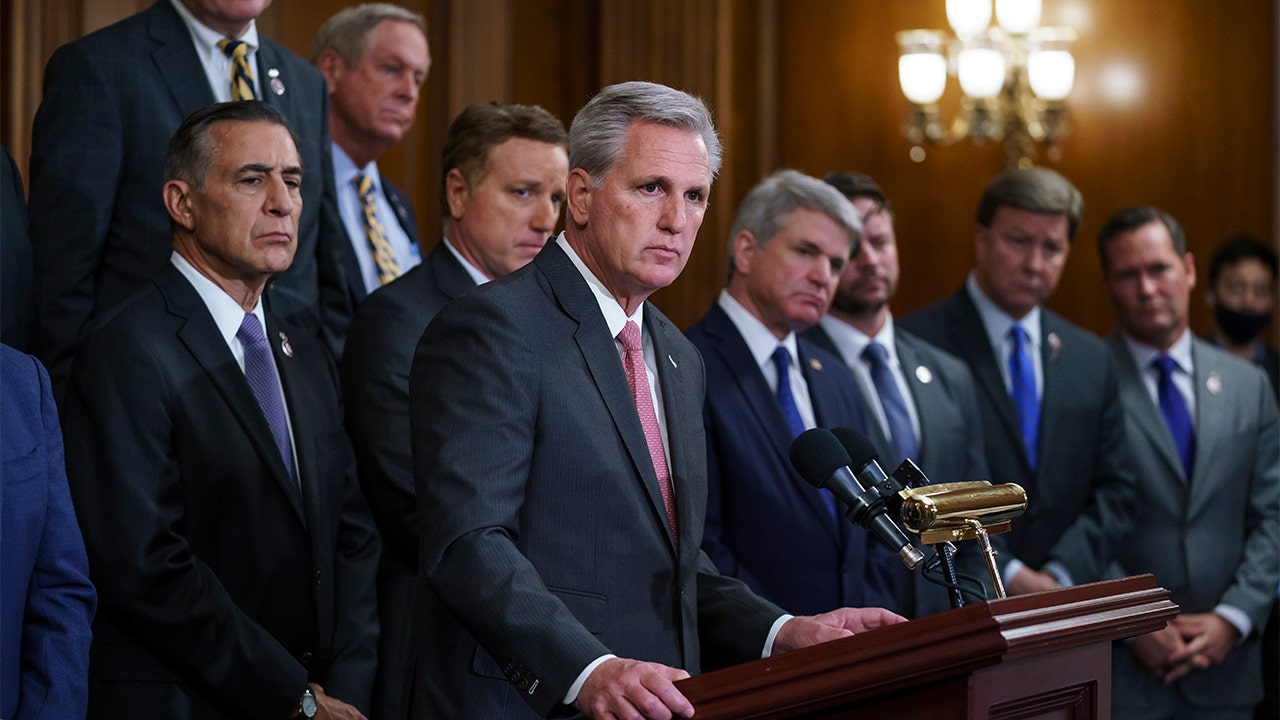task0778
Diamond Member

What's in it: House GOP rules package aims to curb trillions in yearly heaps of new debt
The House Republican rules package includes several provisions aimed at cutting federal spending, which the GOP says has been a major contributor to inflation.
First, let's not get into a pissing contest over which party is more responsible for the $31.38 trillion (and growing) debt we now have. The issue of this thread is what should be done about it, and the link above talks about what the GOP House wants to do.
A 55-page set of rules for the House that Speaker Kevin McCarthy hopes to pass on Monday will set ambitious new curbs on federal spending, part of the GOP's effort to stop piling on trillions of dollars in new debt each year.
One of the biggest changes is a return to a "Cut-As-You-Go" policy that says legislation cannot be considered if it increases mandatory spending over a 5- or 10-year period. This "CUTGO" policy requires bills that call for new spending to find offsetting spending cuts elsewhere in the federal budget.
That is a more aggressive stance compared to the "Pay-As-You-Go" policy under Democratic control. "PAYGO" also requires offsets to new spending, but those offsets can either be spending cuts or tax increases – and in either case, PAYGO rules were often waived entirely by Democrats.
As a fiscal conservative, I can support this although I do think tax hikes ought to be part of the discussion. Will the Senate democrats agree to such a policy? Doubt it, somebody is going to have to blink or we're looking at a gov't shutdown and maybe a debt default otherwise.
The decision to go with CUTGO shows the new GOP’s aversion to possible tax hikes, which can be seen elsewhere in the new rules package. For example, the rules require a supermajority in the House to approve new tax increases.
"A bill or joint resolution, amendment, or conference report carrying a federal income tax rate increase may not be considered as passed or agreed to unless so determined by a vote of not less than three-fifths of the Members voting, a quorum being present," the rules state.
In another push to stop piling on new debt, the rules will end the practice of allowing the House to automatically increase the debt ceiling through passage of a budget resolution that would require borrowing above the current ceiling. Instead, the GOP will require separate votes to raise the debt ceiling in a bid to restore accountability to Congress.
Here's where there's going to be some discord within the GOP as the hard-liner Freedom Caucus people might not support a more moderate spending bill even if some democrats buy into it. Not to mention what the money gets spent on and how much. And all this is the face of existing inflation and slowing economic growth; some say the country is heading into a recession if we aren't already in one. So, will the House GOP stick to their guns on this CUTGO policy? These days, fiscal sanity is not in vogue.
